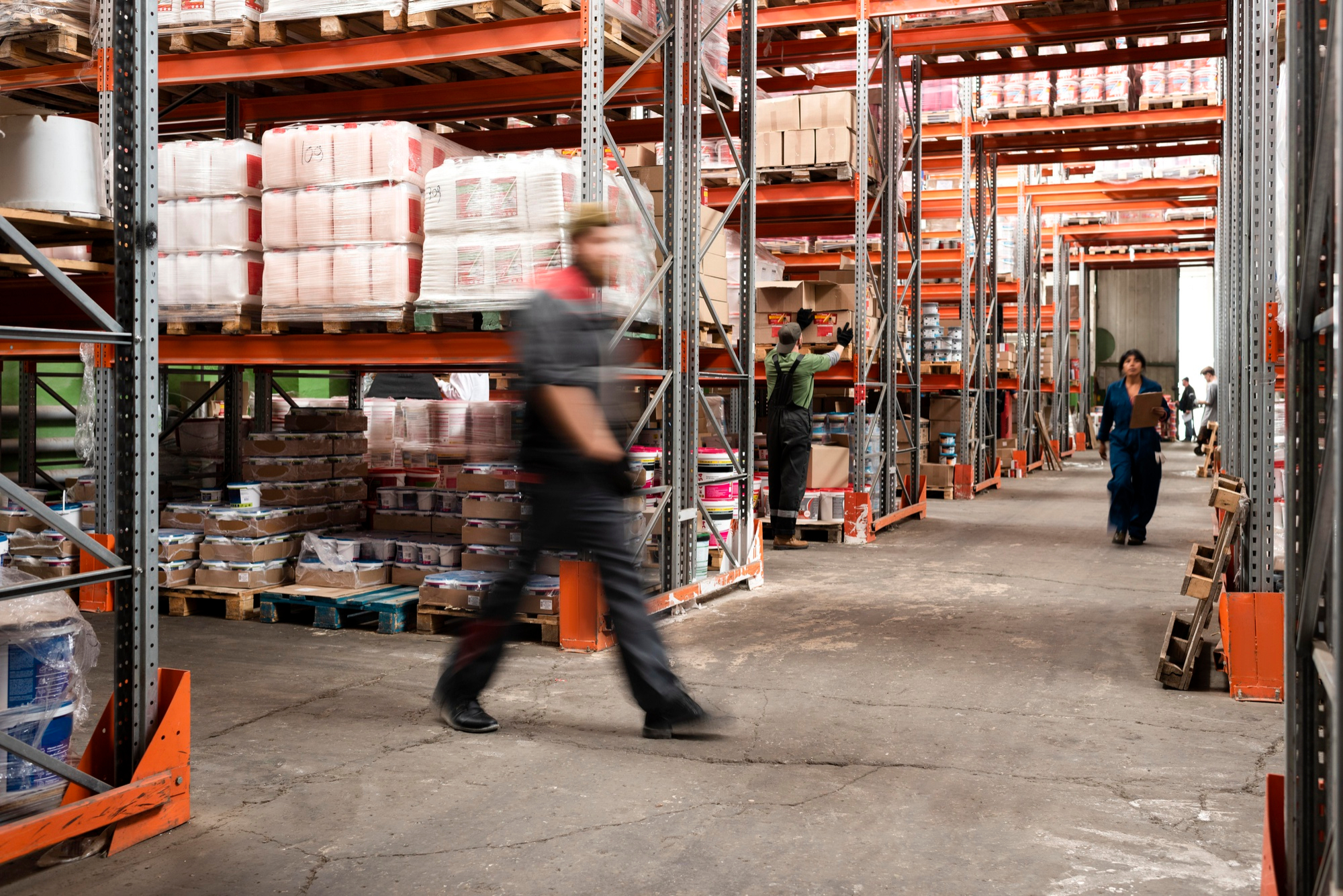FMCG Warehousing: Mastering High-Turnover Inventory Management
By ExpressHR on 2025-01-09 08:01:24

In the fast-paced world of Fast-Moving Consumer Goods (FMCG), efficient warehouse management is crucial for success. With products that typically have a high turnover rate and often short shelf lives, mastering inventory management becomes both a challenge and a necessity. Let's dive into the strategies and solutions that make FMCG warehousing effective and efficient.

Understanding FMCG Warehousing
Unique Challenges
1. Rapid Turnover
- High-volume handling
- Quick stock rotation
- Dynamic inventory levels
- Fast processing requirements
2. Product Characteristics
- Short shelf life
- Temperature sensitivity
- Varying package sizes
- Multiple SKU management
Inventory Management Strategies
Stock Control Methods
1. First Expired, First Out (FEFO)
- Shelf-life tracking
- Expiry date management
- Automated rotation
- Waste reduction
2. First In, First Out (FIFO)
- Stock rotation
- Inventory tracking
- Movement optimization
- Storage organization
Storage Solutions
Zone Management
1. Temperature-Controlled Areas
- Ambient storage
- Cold storage
- Freezer zones
- Climate monitoring
2. Product Categories
- Food items
- Personal care products
- Household goods
- Beverages
Technology Integration
Advanced Systems
1. Warehouse Management System (WMS)
- Real-time tracking
- Inventory visibility
- Order processing
- Performance analytics
2. Automation Solutions
- Automated sorting
- Robotic picking
- Conveyor systems
- Automated guided vehicles
Demand Forecasting
Predictive Analytics
1. Data-Driven Decisions
- Historical analysis
- Seasonal trends
- Market indicators
- Consumer behavior
2. Stock Level Optimization
- Safety stock calculation
- Reorder point determination
- Lead time management
- Demand variability
Order Fulfillment
Efficient Processing
1. Pick and Pack
- Optimized routes
- Batch picking
- Cross-docking
- Quality checks
2. Distribution Management
- Route optimization
- Load planning
- Delivery scheduling
- Transport coordination
Quality Control
Product Integrity
1. Quality Checks
- Receiving inspection
- Storage monitoring
- Dispatch verification
- Documentation
2. Safety Measures
- Temperature monitoring
- Humidity control
- Contamination prevention
- Pest control
Layout Optimization
Space Utilization
1. Storage Design
- Vertical space usage
- Aisle configuration
- Flow optimization
- Access points
2. Product Placement
- Fast-moving items accessibility
- Category clustering
- Pick face optimization
- Storage density
Operational Efficiency
Process Optimization
1. Workflow Management
- Standard operating procedures
- Time management
- Resource allocation
- Performance metrics
2. Labor Optimization
- Task assignment
- Skill development
- Productivity tracking
- Safety training
Sustainability Practices
Environmental Responsibility
1. Energy Efficiency
- LED lighting
- Solar power
- Motion sensors
- Temperature optimization
2. Waste Reduction
- Packaging optimization
- Recycling programs
- Material handling
- Environmental monitoring
Cost Management
Expense Control
1. Operational Costs
- Labor management
- Equipment maintenance
- Utility optimization
- Insurance coverage
2. Inventory Costs
- Carrying costs
- Order costs
- Storage costs
- Handling costs
Future Trends
Innovation in FMCG Warehousing
1. Digital Transformation
- AI integration
- IoT implementation
- Blockchain tracking
- Cloud computing
2. Smart Solutions
- Predictive maintenance
- Automated replenishment
- Smart shelving
- Digital twins
Risk Management
Mitigation Strategies
1. Supply Chain Risks
- Supplier diversity
- Stock buffer
- Alternative sourcing
- Contingency planning
2. Operational Risks
- Safety protocols
- Emergency procedures
- Equipment backup
- Insurance coverage
Conclusion: Excelling in FMCG Warehousing
Success in FMCG warehousing requires a perfect balance of speed, accuracy, and efficiency. With high-turnover inventory management at its core, modern FMCG warehouses must leverage technology, optimize processes, and maintain stringent quality controls while keeping costs in check.
For businesses in the FMCG sector, implementing these specialized warehousing solutions is essential for staying competitive in a fast-paced market. The future of FMCG warehousing lies in the successful integration of smart technology, sustainable practices, and efficient management systems.
Are you ready to transform your FMCG warehousing operations with these innovative solutions? The key to success in FMCG logistics is creating an agile, efficient, and
technology-driven environment that can handle the demands of high-turnover inventory management.